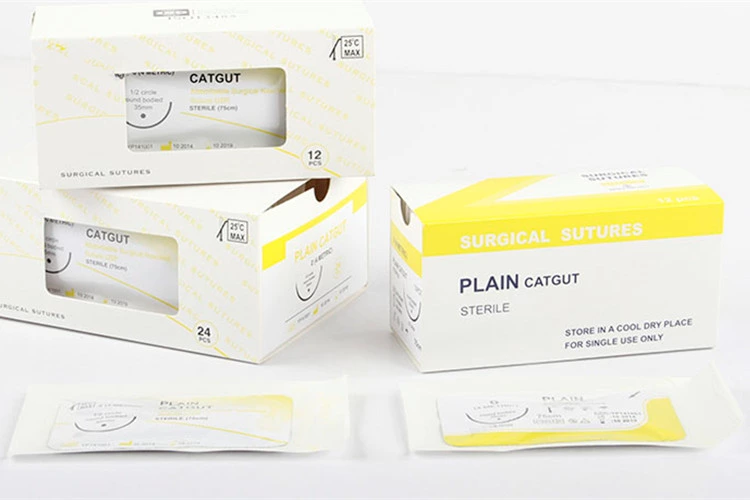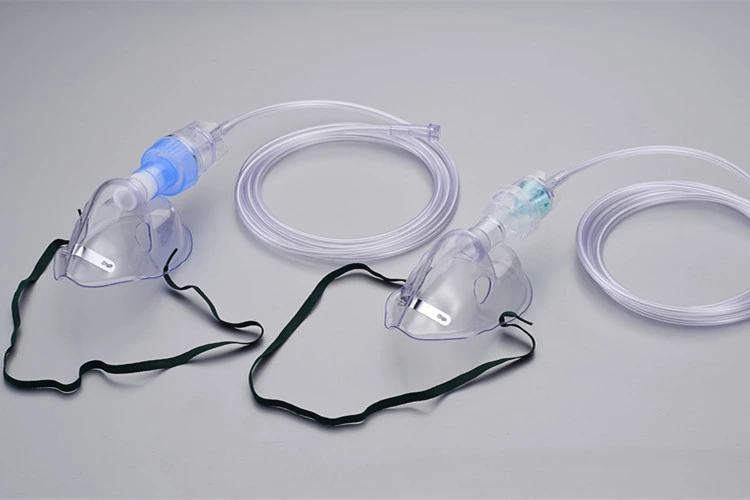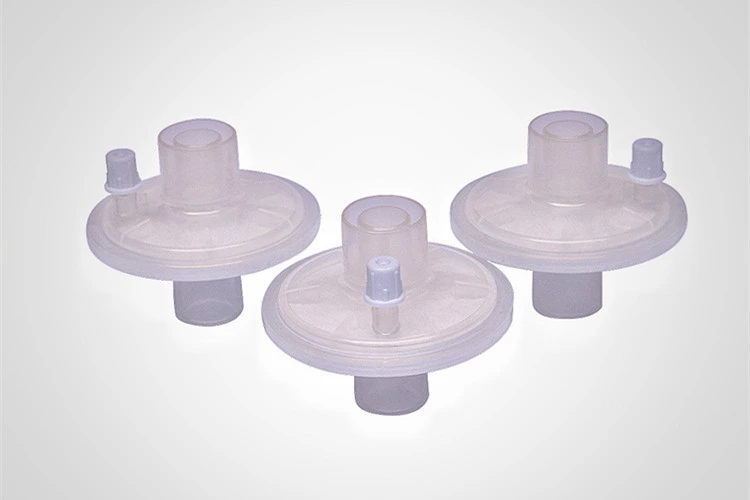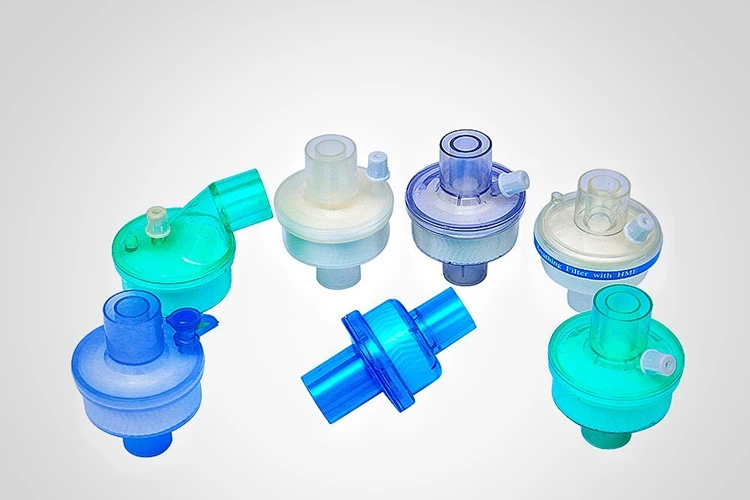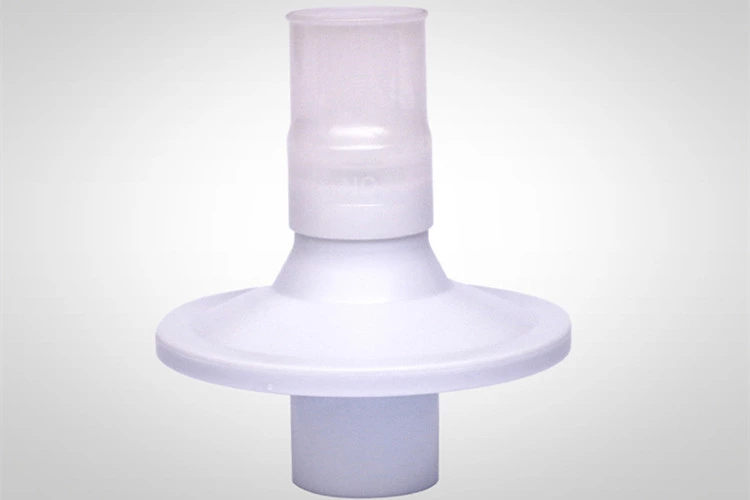Plain Catgut Suture
Plain Catgut suture consists of the suture thread attached to a suture needle.
The suture needle is made of high quality stainless steel specific for medical applications and is firmly attached to the suture thread.
The suture (needle and thread) is used to suture soft tissue on the human body. Plain Catgut is a natural absorbable monofilament suture composed of strands of purified collagen (twisted together), taken from bovine intestines.
Plain Catgut Suture undergoes a ribbon stage chromicisation and is treated with glycerin, It offers a shorter stick hold time and is absorbed faster compared to Chromic Catgut. Where there is an increased level of proteolytic enzymes present, as in the secretions exhibited in the stomach, cervix and vagina. Plain Catgut Sutures are absorbed more rapidly.
Plain Catgut Sutures are packed in tubing fluid and are available undyed. Plain Catgut sutures fulfil all the requirements of USP and European Pharmacopoeia for sterile, synthetic absorbable suture
Indications
Plain Catgut sutures are indicated for use in general surgery. They are suitable for use in soft tissue and for ligation, including use in ophthalmic procedures, but not for cardiovascular and neurological tissues.
Action
Plain Catgut suture may elicit minimal acute inflammatory reaction in tissue and in growth of fibrous connective tissue. Plain Catgut sutures have initial tensile strength that is retained for up to 21 days. Plain Catgut sutures are absorbed by enzymatic degradation.
Adverse Reactions
Adverse effects associated with the use of this suture include wound dehiscence, failure to provide adequate wound support in closure of the sites where expansion, stretching, or distension occurs, failure to provide adequate wound support in elderly, malnourished or debilitated patients or in patients suffering from conditions which may delay wound healing, infection, minimal acute inflammatory tissue reaction, localized irritation when skin sutures are left in place for greater than 7 days, suture extrusion and delayed absorption in tissue with poor blood supply, calculi formation in urinary and biliary tracts when prolonged contact with salt solutions such as urine and bile occurs, and transitory local irritation at the wound site. The use of this suture is contraindicated in patients with known sensitivities or allergies to collagen or chromium, Plain Catgut sutures are treated with chromic salt solutions and may cause a reaction to such allergies. Broken needles may result in extended or additional surgeries or residual foreign bodies. Inadvertent needle sticks with contaminated surgical needles may result in the transmission of bloodborne pathogens.
Contraindications
Plain Catgut sutures should not be used where long suture support is necessary or in cardiovascular or neurological tissues.

